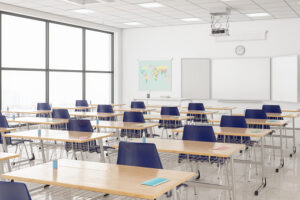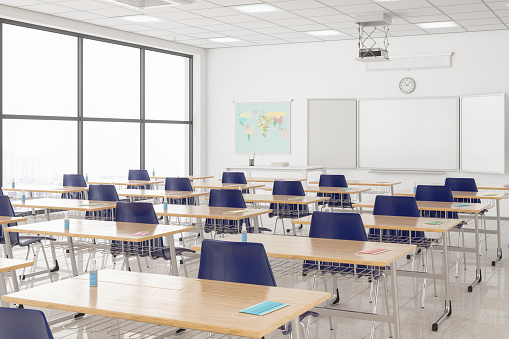Experts: “Schools must be reopened safely”

TORONTO – The Canadian school system looks like a boat at the mercy of the waves. Since the beginning of the pandemic what has been missing is a minimum of stability, a coherent line of the Ministry of Education and the commitment to make all schools safe places for children who are paying dearly for the protracted pandemic that since March 2020 has come to count four waves.
In between there are lost school days, distance learning that does not work, a shortage of teachers, disheartened parents and demotivated children, a total sense of disarray and abandonment to themselves. Just like a boat at the mercy of the waves. In fact, many people wonder where the Minister of Education Stephen Lecce has gone, who has not taken part in press conferences for some time even if they concern his ministry. A political class present, especially in difficult times like this one we are going through, is the minimum that citizens expect.
Meanwhile, almost all the provinces of Canada, frightened by the variant of Covid-19 Omicron that runs like a splinter, have decided to postpone the return of the boys in school.
The only province not to postpone face-to-face classes after the Christmas holidays was Saskatchewan where Education Minister Dustin Duncan said the situation in the province was “good” but did not fail to note that the rapid spread of Omicron could precipitate things. Many parents, moreover, are not so confident that their children are not at risk of contracting the virus and have decided to keep them at home.
In Alberta, children will return to class on Monday, while in Manitoba school will resume online next week while students will return to classrooms on January 17. Meanwhile, Ontario has started 2022 with two weeks of virtual learning. Two weeks or maybe more. Perhaps.
Keeping schools open or closing them has been the key dilemma since the beginning of the pandemic. On the one hand the pressure of experts and doctors – psychologists and pediatricians in the front row – to keep them open for mental health and social development, as well as for academic reasons, on the other hand the fears and lack of trust regarding the safety and hygiene policies that are the basis of the control of the Omicron variant.
Beyhan Farhadi, a researcher at York University, suggested that evidently the delay for the resumption of face-to-face learning is partly logistical and is dictated primarily by the inevitable shortages of teacher staff exposed to infections or infected who must isolate themselves.
“But postponing the reopening of schools only makes sense if jurisdictions use that time to make schools safer, better ventilation in classrooms, better masks for students and teachers, vaccines for children, and measures such as paid sick leave so that parents can properly isolate themselves if they or their children become infected are the basis of a safe reopening. I don’t know, however, if governments will work to implement measures of this kind.”



